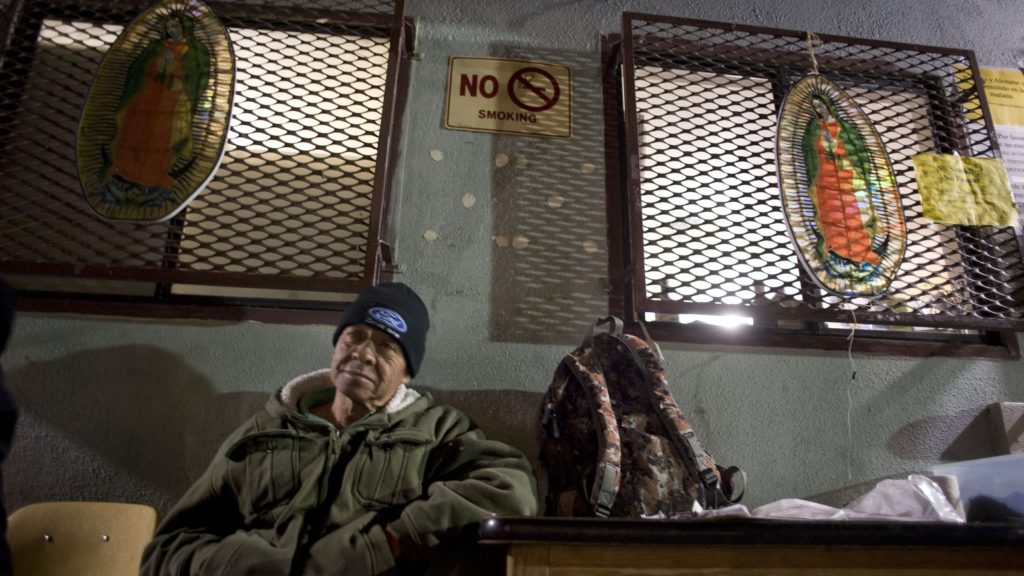When I was making a full-time living as a writer of television shows, it was always about selling a story and characters to a wide variety of audiences. I got good at it. Not good enough to retire to Monaco when I was 40, but with my limited talent I probably went further than expected.
I am grateful for that past life just as I am grateful for my current one. What I do today is work at a homeless shelter. My current job is actually very similar to my former one. I sit across a desk or on the other line of a phone call and “sell” a story. Only this time, I’m not making it up. Think of it like I’m using my writing skills on the ultimate reality show.
It is not a religiously affiliated organization. In fact, I work alongside some remarkable people who have very little common ground with my Catholic beliefs. If they speak at all about spirituality, it is almost always in the currency of our age, where God is more or less molded in the image they desire him to be. Still, they are better people than I am, especially when it comes to working in the field of homelessness where so much tragedy is harvested.
With a homeless population of around 70,000 in Los Angeles County, one can become disheartened working in this particular vineyard. That’s when the Alcoholics Anonymous phrase “one day at a time” comes in handy. If you look at the problem as one person at a time, it helps. When you are involved in this kind of work, you see singular moments of grace that keep you going. Stories like that of Angie.
Angie did not fall into homelessness, she was born into it. When still in the womb, her mother had her third heroin overdose; labor was induced, Angie was born, and she was immediately placed into the custody of Child Protective Services.
Remarkably, Angie coped with her unstable life and even flourished. She maintained excellent grades in school, was a prom queen, and was a star athlete. She attended college and landed a good job at a bank. But then, as she put it, the “residue of trauma” began to have a negative impact on her life.
She began using drugs, which led to other bad choices. Her relationship with a violent mentally ill man found her sitting on her apartment floor at 4 a.m. one morning holding her 3-month-old child in her arms. A voice told her to get up and run out the door with her child. She did, leaving all of her belongings behind.
Angie’s life broke apart. She lost her job, continued to use drugs, burned through what savings she had, and she and her daughter were living in a car. A chance meeting in – of all places, the Department of Motor Vehicles (DMV) – changed Angie’s life. A woman noticed her struggling to fill out a car registration form while juggling a baby. The woman asked her if she was alright. She was not.
The woman knew of a place, a family-living program that offered a lifeline. Angie grabbed it. She got sober, went back to school, and learned to recognize the times when her trauma would rear its ugly head and deal with it. Angie now works full-time as a social worker helping young women who are now experiencing homelessness, as she once was.
I cannot think of a better way to acknowledge the passing of Lent and the approach of the Easter season than this story of redemption and new life. It is a story that should be heard by anyone who has ever passed by a homeless person on the street … namely, all of us.
Angie’s life reminds me of a story a former pastor told me. It was late at night and he was alone in his rectory when the doorbell rang. A ragged homeless man wanted something to eat. The pastor was tired, so he told the man the parish’s Christian Service Center would be open in the morning. He was about to close the door when the man said, “For all you know, I may be Jesus.” The pastor made a ham sandwich.
The woman at the DMV may have seen Jesus in Angie. May we truly celebrate the Easter season by doing likewise to those who, for whatever reason, call the streets their home.

